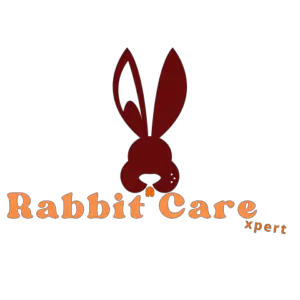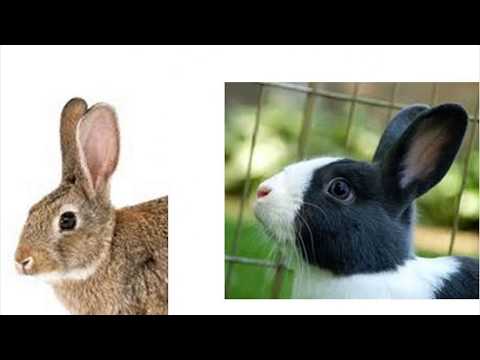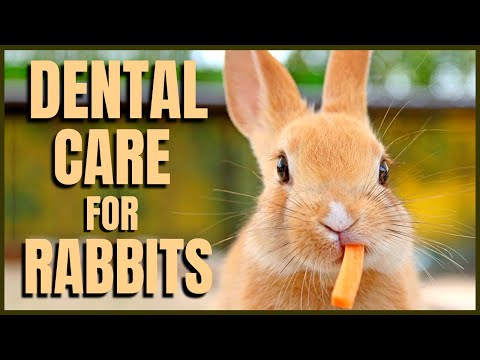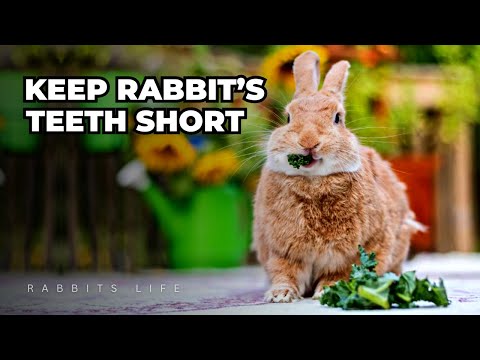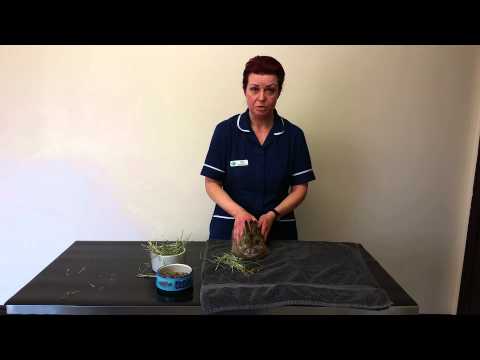Caring for your rabbit’s teeth is crucial for their overall health and well-being. As a responsible rabbit owner, you should pay close attention to your furry friend’s dental health. Rabbit teeth continuously grow throughout their lives, making it essential to provide them with items that help wear down their teeth and prevent dental issues.
Understanding your rabbit’s dental needs involves recognizing common dental problems and the signs of dental disease. Ensuring that your rabbit has a proper diet and chew toys can greatly impact their dental health. Regular veterinary check-ups are also vital for maintaining your rabbit’s overall oral hygiene.
Key Takeaways
- A proper diet and chew toys are essential for maintaining rabbit dental health
- Be aware of common dental problems and signs of dental disease in rabbits
- Schedule regular vet check-ups to ensure optimal oral hygiene for your rabbit

Understanding Rabbit’s Teeth
Rabbits have unique dental anatomy and behaviors that require special attention and care. In this section, we dive into the world of rabbit teeth, exploring their structure, function, and then head on to common dental problems and its solutions.
Anatomy of Rabbit Teeth
Rabbit teeth are unique and designed for a lifetime of gnawing and chewing. They are divided into two main groups: incisors and cheek teeth.
Incisors are the front teeth, while the cheek teeth consist of molars and premolars, located further back in their mouths.
A key feature of rabbit teeth is that they continuously grow throughout their lives. This is why providing the right diet and proper care is essential to maintain their dental health.
Compared to human teeth, rabbit teeth are not covered with enamel, so they wear down more easily. This is where their diet comes in, as it keeps the teeth filed and at optimum length.
How Many Teeth Do Rabbits Have?
Rabbits have a total of 28 teeth. Here’s a breakdown of their dental formula:
- 6 incisors (4 upper, 2 lower)
- 2 peg teeth (tiny teeth behind the upper incisors)
- 12 premolars (6 upper, 6 lower)
- 8 molars (4 upper, 4 lower)
In conclusion, understanding your rabbit’s dental anatomy is crucial for ensuring its overall health. A proper diet and regular monitoring of their teeth will help prevent dental problems.
Common Dental Problems in Rabbits
Rabbits have unique dental anatomy and behaviors that make them prone to certain dental problems. In this section, we explore some of the most common dental problems that rabbits face and how to address them.
Teeth Overgrowth
Rabbits’ teeth continuously grow throughout their lives. When they don’t wear down evenly, this can lead to overgrown teeth. Overgrown teeth can cause a variety of issues such as pain, difficulty eating, and drooling. To prevent teeth overgrowth:
- Provide a high-fiber diet, including timothy hay
- Offer a variety of chew toys (wood, twigs, cardboard)
Malocclusion
Malocclusion occurs when a rabbit’s teeth do not align correctly, causing improper tooth wear and potential overgrowth of incisors and molars. This can lead to:
- Difficulty grooming
- Weight loss
- Reduced appetite
To address malocclusion, consult your veterinarian for dental filings and routine check-ups.
Abscesses
Abscesses are infections that occur in the tooth roots or jawbone. These can develop due to dental problems, such as overgrown teeth or malocclusion. Symptoms of abscesses include:
- Swelling
- Pain
- Reduced appetite
If you suspect your rabbit has an abscess, consult your veterinarian for diagnosis and treatment options, which may include antibiotics or surgery. Regular dental care and maintenance can help prevent the development of abscesses.
Signs of Dental Disease In Pet Rabbits
Dental disease is a common and serious health issue in pet rabbits that can cause pain, discomfort, and even death if left untreated. In this section, we explore the signs of dental disease in rabbits and how to recognize them.
It’s crucial to keep an eye on your rabbit’s dental health, as they can be prone to dental problems. Some common signs of dental disease in rabbits include:
- Decreased or selective appetite: If your rabbit is not eating as much or being picky with their food, it could indicate a dental problem.
- Drooling: Excessive saliva production or drooling can be a sign of dental issues.
- Swelling: If you notice any swelling around your rabbit’s jaw or cheeks, it could be due to dental disease.
- Weight loss: Dental problems can cause discomfort while eating, leading to weight loss.
- Teeth grinding: You might hear your rabbit grinding their teeth, which can occur when they are in pain due to dental issues.
To better monitor your rabbit’s health and spot potential dental issues early, it’s important to become familiar with these symptoms and keep an eye out for any changes in their behavior. Learning how to know if your rabbit is sick can help you identify potential problems and get your rabbit the care they need.
When you identify dental issues, it’s essential to address them promptly to prevent further complications. Depending on the issue, your rabbit may need veterinary treatment, such as tooth trimming or tooth extractions, to alleviate pain and discomfort.
It’s also important to keep your rabbit’s stress levels low when they are experiencing dental issues. If you’re unsure how to help your rabbit feel more at ease, consider incorporating strategies to calm a stressed rabbit into your pet care routine.
By staying vigilant and responding swiftly when signs of dental disease arise, you can help ensure your rabbit maintains good dental health and lives a happy, comfortable life.
Rabbit Teeth Care
Proper dental care is essential for maintaining your rabbit’s health and wellbeing. In this section, we explore the best practices for rabbit teeth care, including diet, chewing toys, and regular dental check-ups.
Proper Nutrition
A balanced diet is crucial for your rabbit’s dental health. Their primary source of nutrition should be hay, such as timothy hay, which provides the necessary fiber and promotes natural wear on their teeth.
Greens like kale, parsley, and romaine lettuce are a great addition as well. Limit pellet feeding to no more than a quarter cup per four-to-five pounds of bunny per day. A well-rounded diet may include:
- Hay: Timothy, grass, or oat hay
- Greens: Kale, parsley, romaine lettuce, dandelion leaves
- Pellets: Limited to a quarter cup per 4-5 pounds of bunny
Exposure to sunlight is also essential for your rabbit’s overall health, so ensure they get enough light without overexposure.
Quality Chew Toys
Chew toys are essential for helping your rabbit maintain healthy teeth by keeping them filed down. Provide your rabbit with a variety of chew toys such as[^1^]:
- Wooden toys
- Cardboard
- Apple or willow branches
Chewing these materials helps your rabbit maintain a healthy tooth length and prevents painful overgrowth.
Regular Check-Ups
Monitor your rabbit’s dental health by regularly inspecting their teeth for any signs of problems, like overgrown or misaligned teeth. If you notice anything unusual, consult your rabbit veterinarian. Some symptoms to watch out for include:
- Drooling
- Reduced appetite
- Changes in eating habits
In addition to a home inspection, it’s vital to schedule regular check-ups with a rabbit veterinarian to ensure proper dental health and overall well-being.
Importance of Diet in Maintaining Rabbit’s Dental Health
A healthy diet plays a crucial role in maintaining your rabbit’s dental health, especially when it consists of a variety of high-fiber foods.
A great example of high-fiber food is hay, which should make up about 80% of your rabbit’s diet. Among different types of hay, timothy hay is the most recommended option.
Not only does hay provide the necessary fiber for maintaining good digestive health, but its rough texture also helps in wearing down your rabbit’s teeth as they chew, which is essential since their teeth grow continuously throughout their lives.
Essential Components of a Healthy Rabbit Diet:
- Hay (preferably timothy hay)
- Pellets (high-quality and high-fiber)
- Fresh greens and non-toxic plants
- Clean water
Apart from hay, pellets are also an integral part of a rabbit’s diet. Make sure to select high-quality, high-fiber pellets for your bunny, as they provide essential vitamins and minerals. However, pellets should be given in moderation.
Additionally, fresh greens are vital in supplying your rabbit with essential nutrients and hydration. Including a mix of leafy greens, herbs, and grass in your rabbit’s diet can promote overall health and address tooth concerns.
When planning your rabbit’s diet, consider these points:
- Hay: Unlimited amounts, with a focus on timothy hay for adult rabbits.
- Pellets: Small quantities, ensuring they are high-quality and high in fiber.
- Grass and Greens: A variety of non-toxic plants, veggies, and herbs suitable for rabbits.
By providing your rabbit with a balanced and diverse high-fiber diet, you will be actively contributing to their overall health and helping maintain their dental well-being. Regular dental check-ups, as well as chew toys, may also be beneficial in promoting optimal dental health for your pet rabbit.
Role of Chew Toys in Rabbits Dental Health
Chew toys play a crucial role in maintaining the dental health of rabbits. In this section, we explore the importance of chew toys for rabbits and how they contribute to healthy teeth and gums.
Cardboard and Untreated Wood
Chew toys play a crucial role in maintaining your rabbit’s dental health. Cardboard is a popular and affordable option for chew toys.
Rabbits love to chew on cardboard boxes and other paper products as it satisfies their natural chewing instincts. Cardboard is safe for rabbits and also provides them with mental stimulation.
When choosing wood for your rabbit, make sure to use untreated wood as treated wood can contain chemicals that may be harmful to your bunny.
Twigs and Sticks
Another excellent option for chew toys is using twigs and sticks from bunny-safe trees, such as apple, pear, or willow trees.
These natural options help to grind down your rabbit’s teeth and provide mental stimulation as they play and chew. Here are some benefits of using twigs and sticks as chew toys:
- They are natural and eco-friendly.
- Mimic rabbits’ wild environment.
- Can be easily replaced or replenished.
Wooden Toys
Wooden toys, such as blocks or puzzles specifically designed for rabbits, are also effective in keeping their teeth healthy. Wooden toys are excellent for:
- Durability: They last longer and can withstand aggressive chewing.
- Variety: A wide range of shapes and sizes are available, offering an array of challenges for your rabbit.
- Safety: Specially designed rabbit toys usually have smoothed edges to prevent injuries.
Offering a variety of chew toys, including cardboard, untreated wood, twigs, sticks, and wooden toys, help to ensure your rabbit’s dental health remains in top condition.
Regularly rotate these toys to maintain their interest and provide optimal stimulation, ensuring your bunny chews enough to wear down their teeth and avoid dental problems.
Importance of Regular Vet Check-Ups
Taking your rabbit to the vet for regular check-ups is essential for maintaining their overall health, including their dental health.
During these visits, your rabbit’s teeth can be examined through oral exams, ensuring any potential issues are caught early on.
It’s recommended that you schedule an annual exam with a qualified rabbit veterinarian to keep your bunny’s teeth in top shape.
When you visit a rabbit veterinarian for a check-up, they will typically perform the following:
- Examine the overall health of your rabbit, including weight, eyes, ears, and fur condition.
- Perform an oral exam to check for dental problems such as overgrown teeth, malocclusion, or abscesses.
- Discuss proper dental care for your rabbit and offer advice on diet, chew toys, and overall dental maintenance.
Oral exams are crucial for detecting dental issues early and ensuring that your rabbit’s teeth remain healthy. A few common rabbit dental issues that can be detected during these exams include:
- Overgrown teeth
- Misaligned teeth, also known as malocclusion
- Tooth decay or infection
- Abscesses, which are bacterial infections in the tooth or jaw
One key aspect of maintaining your rabbit’s oral health is providing them with the proper diet, including timothy hay and a variety of chew toys.
If you need guidance on how to care for your rabbit’s teeth or need suggestions for suitable chew toys, your rabbit veterinarian can provide you with valuable information during your check-up.
Additionally, you can find useful information on rabbit vaccinations here.
To sum up, by scheduling regular vet check-ups and oral exams for your rabbit, you not only promote overall health but also ensure any dental issues are addressed early on.
Don’t hesitate to consult your rabbit veterinarian for advice on proper care and be proactive in maintaining your bunny’s dental health. Learn more about the frequency of these check-ups here.
Conclusion

In caring for your rabbit’s teeth, it’s essential to provide a balanced diet and proper chewing materials.
Start by offering unlimited grass hay, like timothy or orchard hay, which helps grind down their teeth and prevent dental issues.
Incorporate leafy greens daily, such as:
- Kale
- Romaine lettuce
- Parsley
- Cilantro
- Broccoli leaves
Limit pellets to no more than 1/4 cup per 5 lbs of body weight daily, and offer occasional treats like fruits or vegetables.
Chew items are equally important and should be introduced into your rabbit’s routine. Some examples include:
- Wood sticks
- Cardboard boxes
- Twigs
Regularly observe your rabbit’s behavior and consult a veterinarian if you notice any signs of dental problems. By following these steps, you’ll ensure your rabbit stays happy and healthy.
FAQs
What is the appropriate diet for a rabbit’s dental health?
A high-fiber diet is essential for maintaining your rabbit’s dental health. Provide a mixture of hay (preferably timothy hay) and leafy greens daily to promote chewing and wear of the teeth. Pellet feeding should be limited to no more than a quarter cup per four-to-five pounds of bunny per day.
What chew toys are recommended?
Offer a variety of chew toys, including:
- Wooden toys
- Twigs
- Cardboard
- Sisal ropes
These will help your rabbit maintain their dental health by providing opportunities for constant chewing.
How should I monitor my rabbit’s teeth?
Regularly check your rabbit’s teeth to spot any issues. Signs that your rabbit may have dental problems include:
- Lack of appetite
- Difficulty closing their mouth
- Loud teeth grinding
- Weight loss
- Teeth getting stuck in chew toys
Keep an eye on your rabbit and consult a vet if you suspect any dental issues.
Should I trim or file my rabbit’s teeth myself?
You should not attempt to trim or file your rabbit’s teeth at home, as it can cause more harm than good. If your rabbit’s teeth appear too long or have issues, consult a veterinarian for appropriate care.
Can direct sunlight benefit my rabbit’s teeth?
Yes, exposing your rabbit to direct sunlight, when possible and ensuring they don’t get overheated, can help promote dental health.
